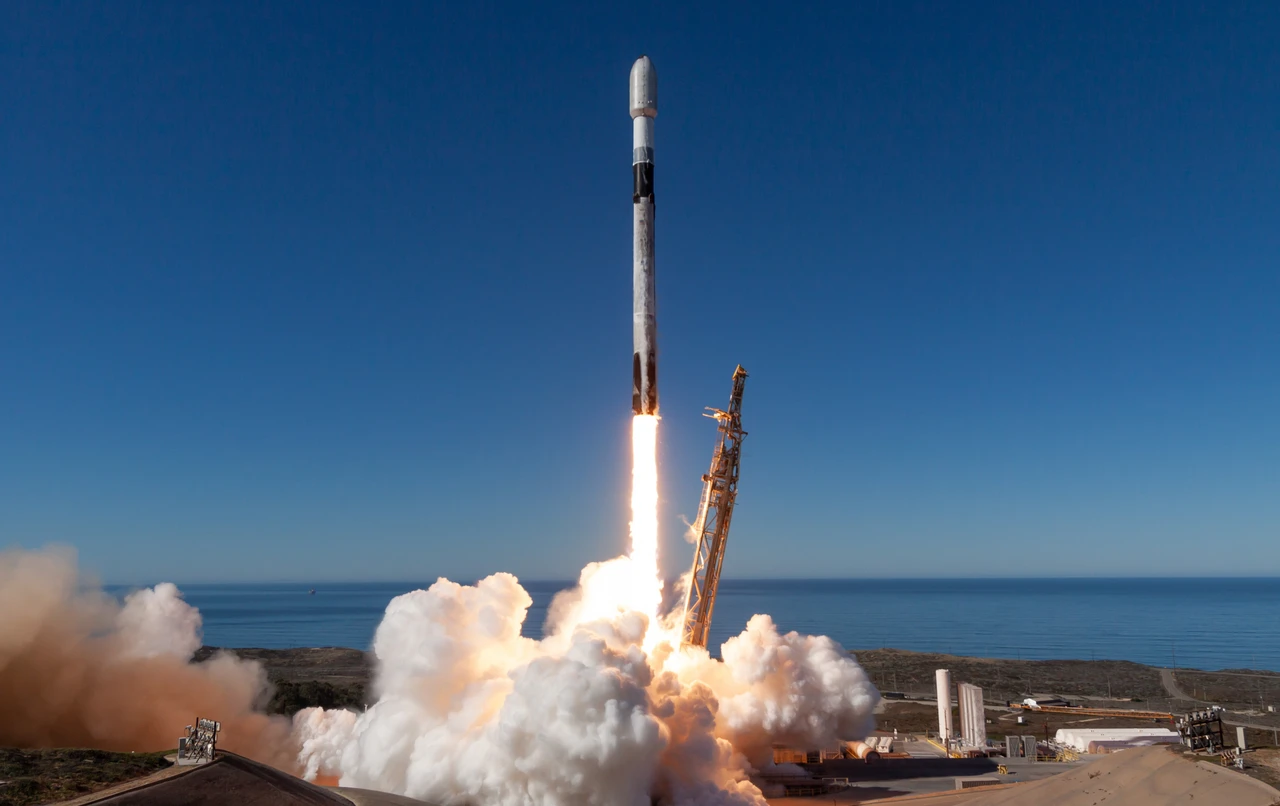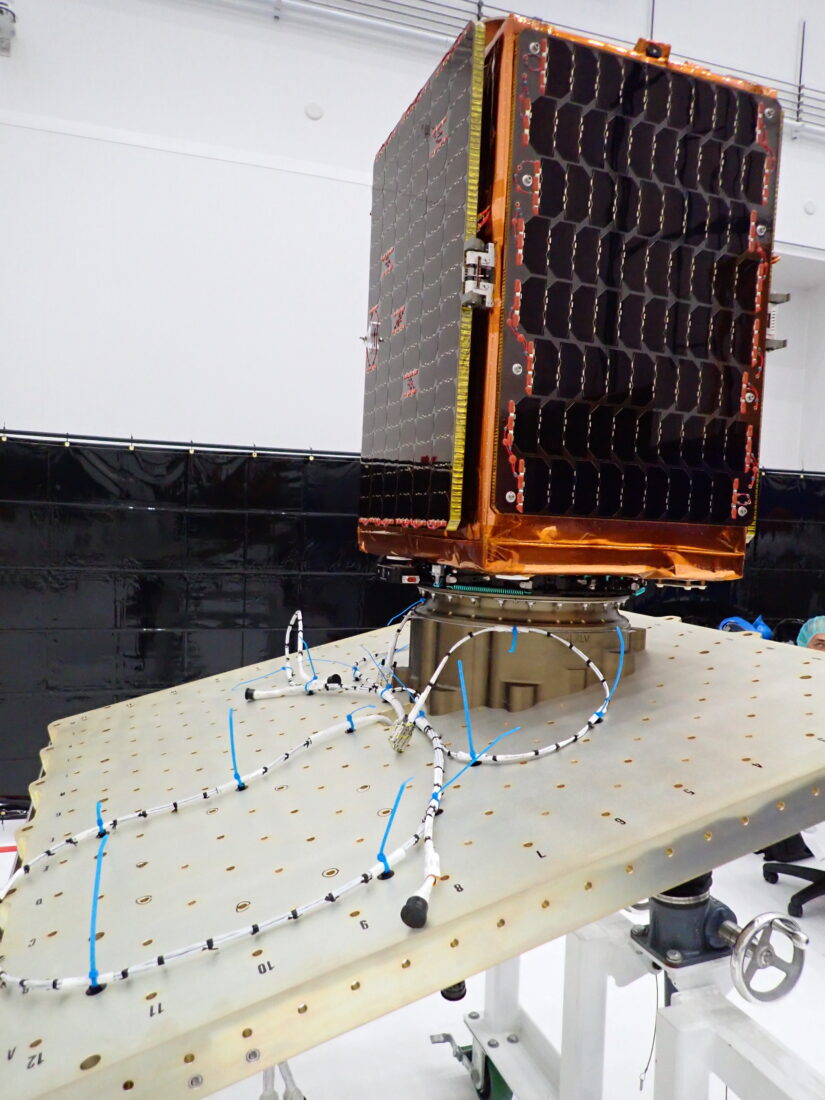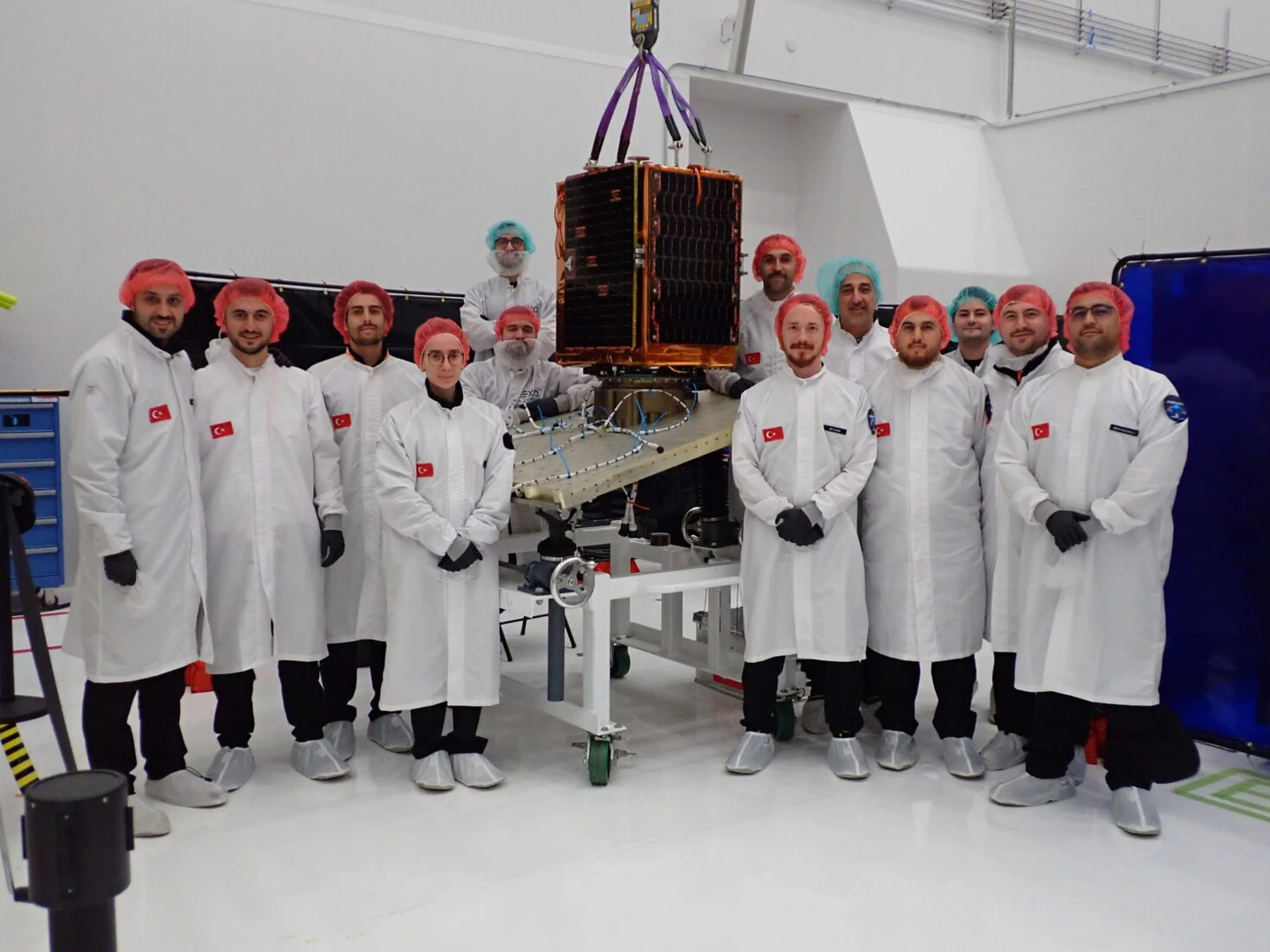Turkish space firm Fergani’s 1st satellite successfully launched into orbit
 Turkish space firm Fergani Space launched its first satellite, the firm announced 15 January, 2025 on X (Handout / SpaceX / AA)
Turkish space firm Fergani Space launched its first satellite, the firm announced 15 January, 2025 on X (Handout / SpaceX / AA)
Fergani Space, a subsidiary of Turkish defense giant Baykar, successfully launched its first satellite, “FGN-100-d1,” as part of SpaceX’s Transporter-12 mission, the firm announced Tuesday on X.
The Turkish Space Agency confirmed that SpaceX’s Falcon 9 rocket carried the FGN-100-d1 satellite into space from the Vandenberg Space Force Base in the U.S., marking Türkiye’s entry into the Small Geostationary Satellite (SGEO) category.
The agency highlighted that the satellite will provide global coverage in communication and geo-positioning, pioneering future technologies.
The Transporter-12 mission included 131 payloads, such as cube satellites, microsatellites, and orbital transfer vehicles, along with the FGN-100-d1.
Additionally, the hydrogen peroxide space engine of the Fergani satellite underwent a successful firing test in May last year.

Another Turkish space firm, Plan-S, also launched satellites as part of the same mission. The agency stated that Plan-S is advancing solutions in IoT and 6G NTN communication technologies with its commercial satellites. So far, the company has successfully launched nine satellites into space and continues to expand its IoT satellite network.
Launched into space
Türkiye’s largest satellite produced by a private company, the 102-kilogram FGN-100-d1, was sent into space as part of the Rideshare Program on the Transporter-12 mission.
The national satellite successfully separated from the launch vehicle and settled into orbit approximately 62 minutes after launch, at 11:11 PM Turkish time.
Once positioned in orbit, the FGN-100-d1 satellite began transmitting telemetry data, marking the successful start of its mission.

‘We have placed our first satellite into orbit’
The launch and orbital deployment journey of the FGN-100-d1 satellite was monitored by Selcuk Bayraktar, CEO of Fergani Space, and his team from the Space Observation and Control Center located at the Ozdemir Bayraktar National Technology Center.
Following the satellite’s operational initiation, Bayraktar stated:
“Our Fergani Uzay initiative, which we launched in 2022, continues today as a large family of 106 people. Today, we successfully placed our first satellite into orbit. These satellites will serve as a part of a low Earth orbit constellation, providing positioning and communication services. This project has been entirely conducted using our own resources. Our satellite has now reached its orbit at 500 kilometers and has completed its initial maneuvers.”
‘We will develop the Ulug Bey Global Positioning System with our own resources’
“God willing, within five years, we will reach a total of 100 satellites and fully develop the Ulug Bey global positioning system with our own resources to share with all friendly and allied regions,” Bayraktar stated.
“As we complete the constellation of our satellites, we are also continuing to work on the development of a launch vehicle weighing 50 tons, capable of lifting 1.5 tons into orbit. May this be beneficial and prosperous for our nation and country,” he added.
“I extend my congratulations and gratitude to all my teammates who tirelessly contributed to our country’s space journey,” Bayraktar concluded.

To orbit earth 15 times a day
Developed entirely with national resources by Fergani engineers, the FGN-100-d1 satellite will operate in Low Earth Orbit (LEO) at approximately 510 kilometers and in a Sun-Synchronous Orbit (SSO).
The national satellite will travel at a speed of 7.6 kilometers per second, completing around 15 orbits of Earth each day.
To support Türkiye’s space journey
Equipped with three redundant flight computers, the FGN-100-d1 satellite aims to successfully test its capabilities in operations, telemetry-telecommand communications, positioning, and payload communication in orbit. During its development, critical avionics equipment, local software integration, a green propulsion system, structural design efforts, and environmental tests were successfully carried out by the Fergani Space engineering team.
The project aims to significantly advance Türkiye’s space ecosystem and technology capabilities.



